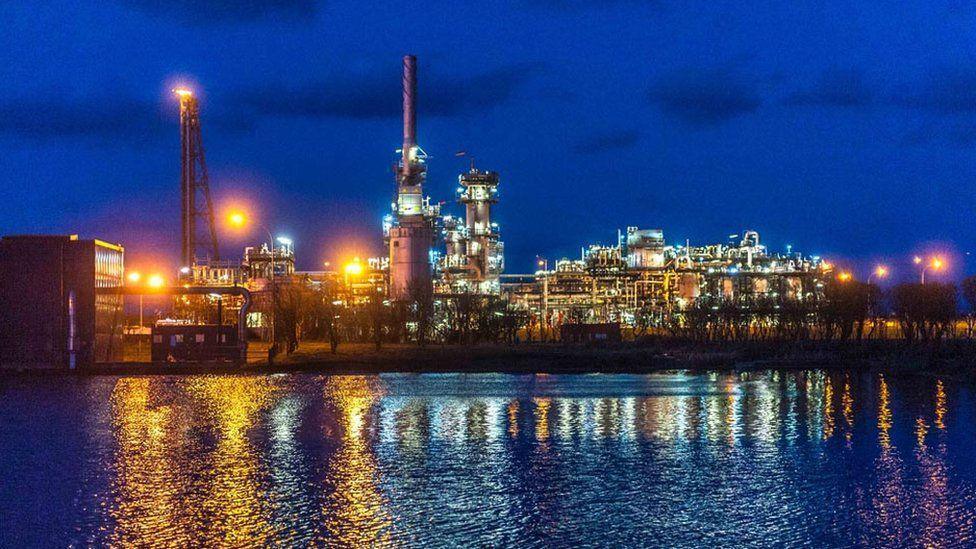CO2 pipeline plan 'a game-changer', villagers told

Rich Denny, managing director of the Northern Endurance Partnership, at the consultation event in Easington
- Published
A pipeline to capture carbon dioxide from industry around the Humber would clean up the area and create thousands of jobs, villagers have been told.
Northern Endurance Partnership (NEP) is holding a series of consultation meetings over plans to build a 50-mile (80km) pipeline from Drax, North Yorkshire, to Easington, on the East Yorkshire coast.
Rich Denny, from NEP, said the project had "the potential to be a game-changer for businesses across the Humber, driving economic growth while decarbonising operations".
Gerard Halewood, from Easington, said he thought it was "generally a good idea", but was "a bit concerned about geological stability from the digging" and "the increase in traffic".
The proposal is part of a wider government plan, announced last autumn, to spend £22bn on carbon capture and storage across the north of England.
According to NEP, the Humber area is the UK's highest carbon-producing region.
If approved, the pipeline would transport carbon dioxide (CO2) emitted from industrial sites and power stations around the Humber estuary to a secure storage area in rock beneath the North Sea.
The route would run along the south bank of the Humber before crossing the estuary east of Hull and making its way to the coast.

Easington resident Andrea Clubley is in favour of the idea of carbon capture
A public consultation opened on 29 October and is due to run until 17 December.
Mr Denny, the managing director of NEP, said it was a way for local people "to help shape the project".
Andrea Clubley, from Easington, inspected the plans at the village community centre on Friday.
She welcomed the idea of capturing carbon dioxide from local industry.
"We need to store this CO2 and the caverns are out there under the North Sea, why not use them?" she said.
"If they are going to bypass the village [with the pipeline] I think this is a good thing."
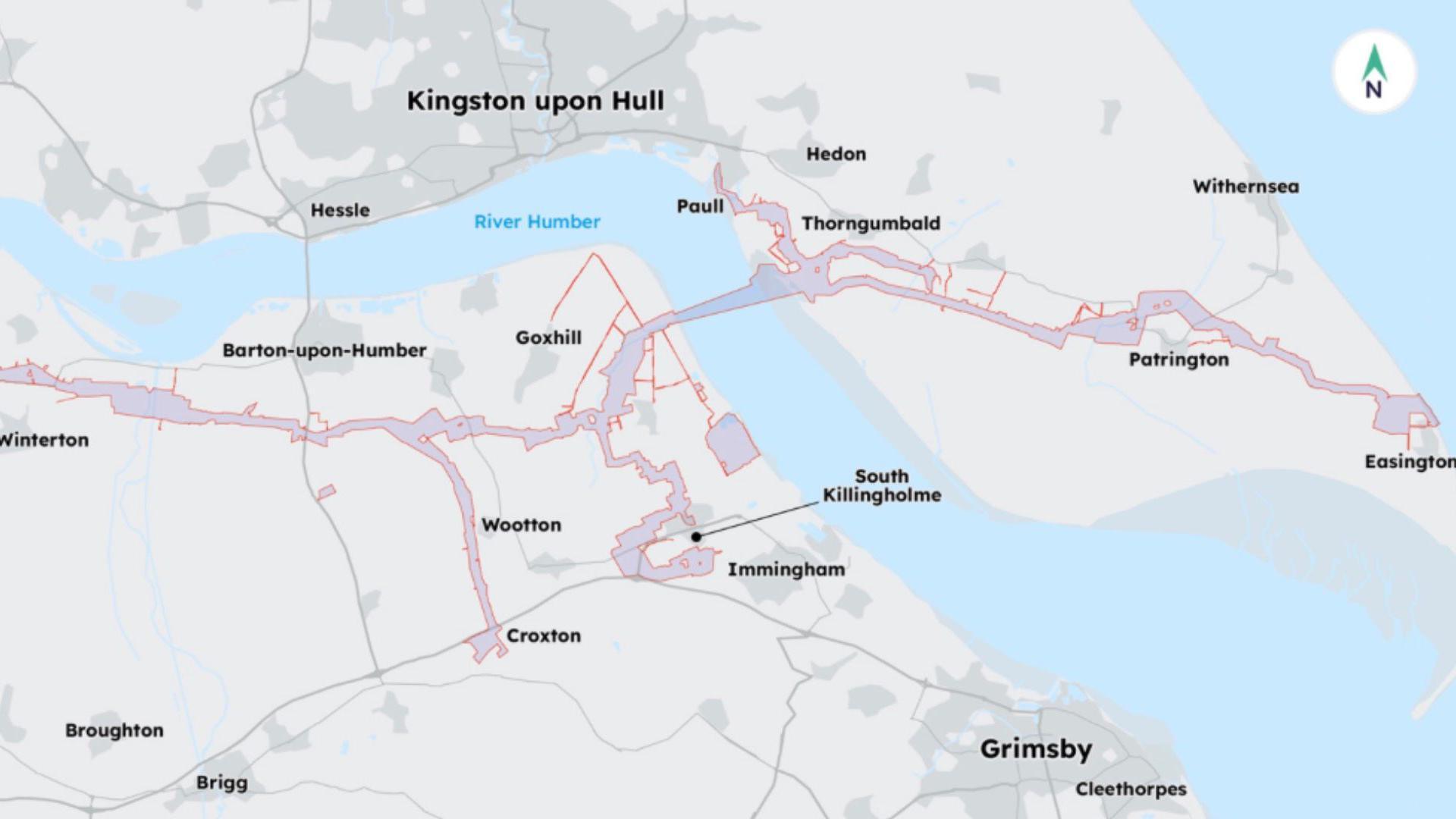
A map of the proposed carbon capture pipeline route along the Humber estuary
Carbon capture and storage is being heavily backed by the government as a way of reaching net-zero emissions targets, in addition to creating thousands of skilled jobs.
The Government announced a £22bn investment in the technology in October 2024, but two of the leading environmental groups have expressed scepticism.
Greenpeace responded to the investment by calling for spending instead on offshore wind or nationwide home insulation.
At the time, Doug Parr, the group's UK's policy director, raised concerns about connecting carbon-capture technology to existing fossil fuel projects.
He said £22bn was "a lot of money to... extend the life of planet-heating oil and gas production".
Meanwhile, Friends of the Earth argued the government should be spending the money on insulating people's homes.
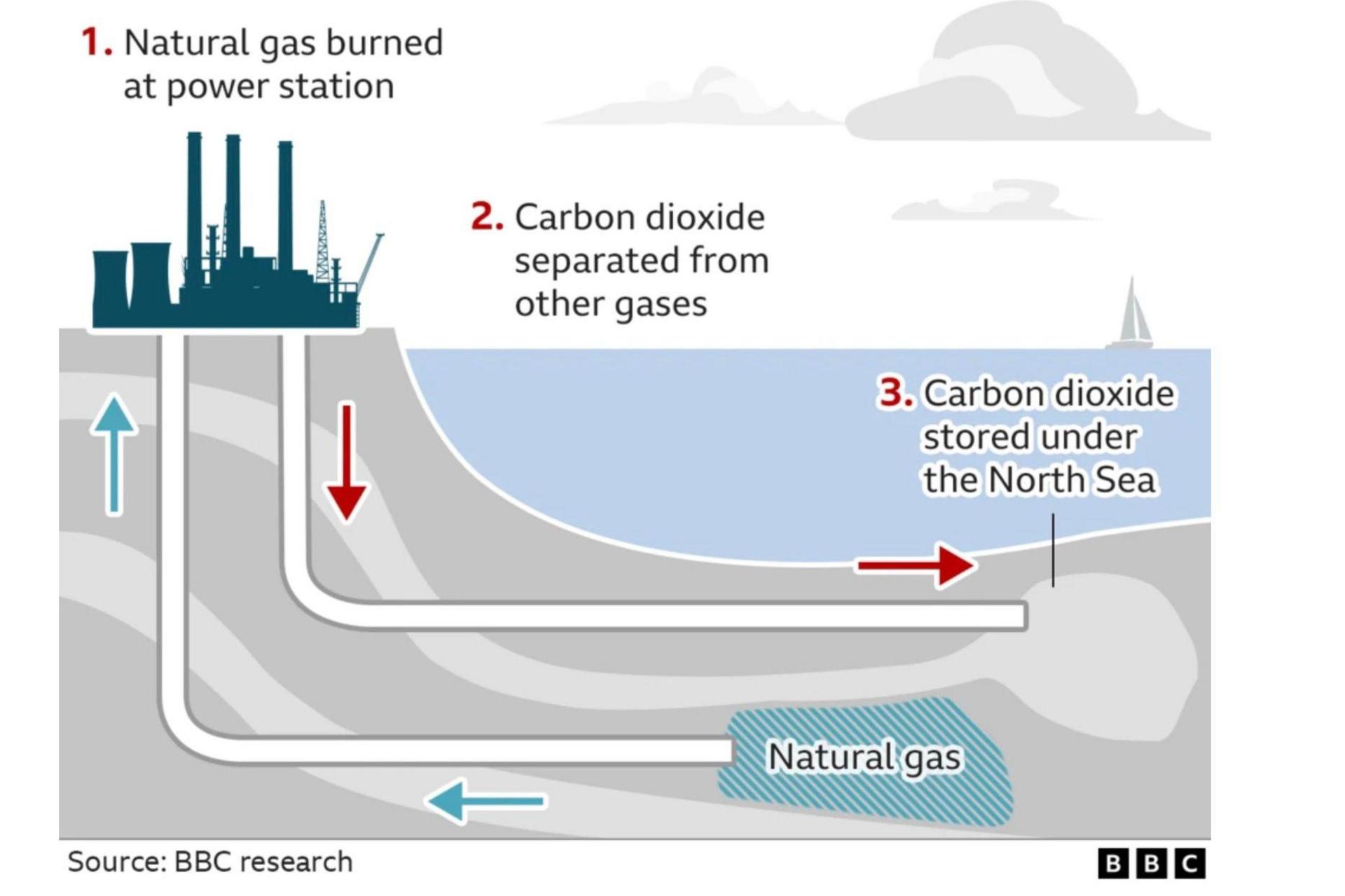
Co2 could be captured from gas-fired power stations and stored under the sea
Some residents in Easington, where the pipeline would reach the coast, expressed concerns about disruption during building work.
Richard Smith said: "I am concerned about the impacts of the pipe and all the tunnelling involved.
"They say it's only a 30m [98ft] spread for works access, but that's quite a lot of land being disturbed when you consider this is going from here all the way to Drax."
Fellow villager John Edmonds added: "I've really not seen enough to make my mind up. I think there will be disruption, but given that it will eventually be underground we shan't really know it's there."
Listen to highlights from Hull and East Yorkshire on BBC Sounds, watch the latest episode of Look North or tell us about a story you think we should be covering here, external.
Download the BBC News app from the App Store, external for iPhone and iPad or Google Play, external for Android devices
- Published11 December 2023
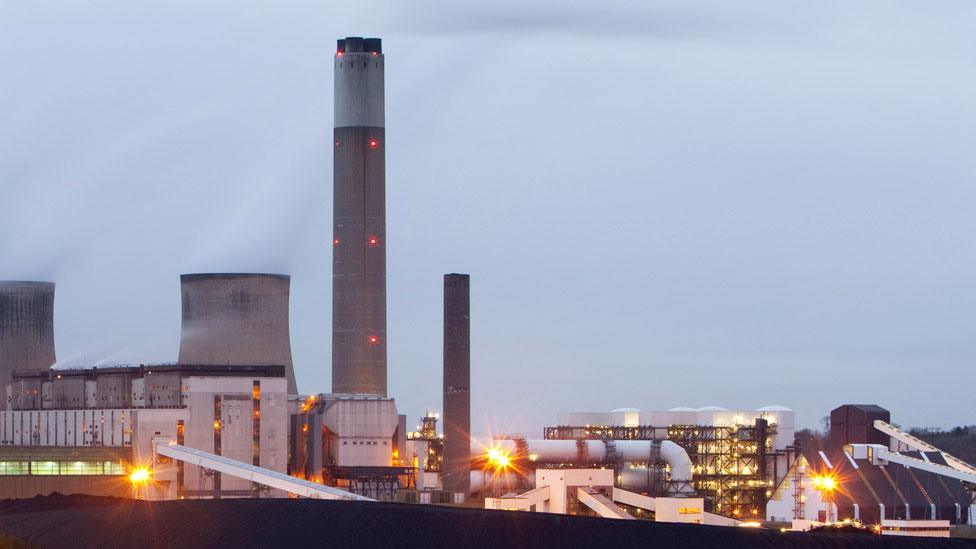
- Published29 October
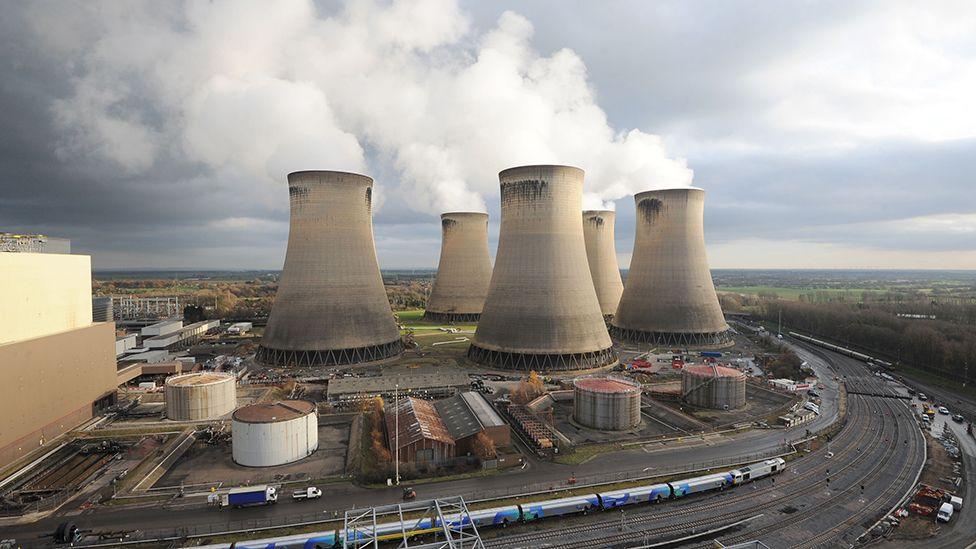
- Published12 June
